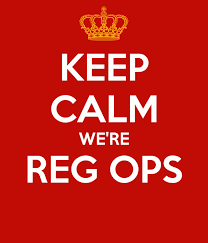What is RegOps and how will it revolutionize compliance? I recently visited with Anil Karmel to help understand how this concept weds multiple concepts, including data analytics, Design Thinking, AI and other tools to create a powerful mechanism to drive compliance forward.
The term Reg Ops is coined from the combination of regulation and operations, indicating its focus on streamlining the processes related to policy adoption, regulatory compliance, and risk management. Reg Ops brings a variety of software tools and practices that leverage automation to achieve compliance quickly and efficiently. This approach, with its focus on near real-time and near continuous compliance, is ideal for businesses looking to integrate compliance as part of their core operations without sacrificing productivity. RegOps specifically addresses the unscalable problem of regulatory compliance by incorporating lessons from DevOps. Karmel’s vision was to build a platform that could provide compliant software development continuously and in real-time, thereby changing the compliance landscape. As a result, RegOps introduces a holistic solution that encompasses both human and machine processes for improved efficiency in regulatory compliance.
Chief Compliance Officers (CCOs) and compliance professionals often face the daunting task of keeping up with ever-changing regulations and demonstrating compliance in an efficient and timely manner. The traditional methods for achieving compliance are manual and time-consuming, thus falling short of effectively tackling the increasing complexity of requirements. With the growing significance of compliance in ensuring organizational success, there is a pressing need for a more streamlined and automated approach that can address the compliance challenges at scale. Karmel emphasized the necessity of transforming the way businesses handle compliance. RegOps can do this, providing an evolution of compliance that shifts away from manual processes towards embracing automation and cultural transformation. By learning from the adjacent discipline of DevOps, Karmel and his co-founder Travis Howard developed an automated, real-time solution to help businesses better address compliance challenges, regardless of their size.
One key factor that determines the success of a compliance solution is user experience. It is crucial to develop a system that not only provides seamless communication between machines but also ensures a positive human interaction with the compliance artifacts. By designing the system with the users in mind, the platform becomes more effective and impactful. A RegOps platform should be built around providing a good machine experience for machines to interact and a good human experience for humans to engage with compliance artifacts. The API-centric platform integrates with an organization’s existing tools to gather evidence in near real-time and automates the creation of tickets and real-time reports for any compliance gaps. The user-friendly reporting features cater to stakeholders at various levels, enabling them to trust and rely on the insights derived from the platform.
Regulatory compliance is an ongoing endeavor, and businesses must constantly adapt to changes and improvements in their fields. Thus, adopting a continuous process that facilitates constant refinement of practices is a necessity for successful compliance operations. By liberating businesses from time-consuming manual processes, automated technological solutions enable them to focus on improving their overall compliance outcomes. Karmel’s vision for RegOps revolves around a continuous, real-time compliance journey that is constantly evolving and adapting to users’ needs. RegOps can help provide continuous, scalable solutions that conquer regulatory compliance challenges by harnessing the power of automation and cultural transformation.
As the business landscape evolves, the importance of compliance cannot be understated. Organizations need to embrace new approaches, technology, and cultural shifts in order to stay ahead of the curve when it comes to meeting regulatory requirements. This entails not only adopting automated solutions but also fostering a culture that prioritizes compliance and understands its impact on both the organization and its stakeholders. Compliance can leverage RegOps in transforming the compliance ecosystem. Karmel highlighted the fact that without this shift in approach, businesses would find themselves lagging behind as regulations and the demonstration of compliance continue to change. By promoting near real-time and near complete compliance solutions, such as the ones offered by RegOps, businesses can triumph over the ever-evolving compliance challenges.



